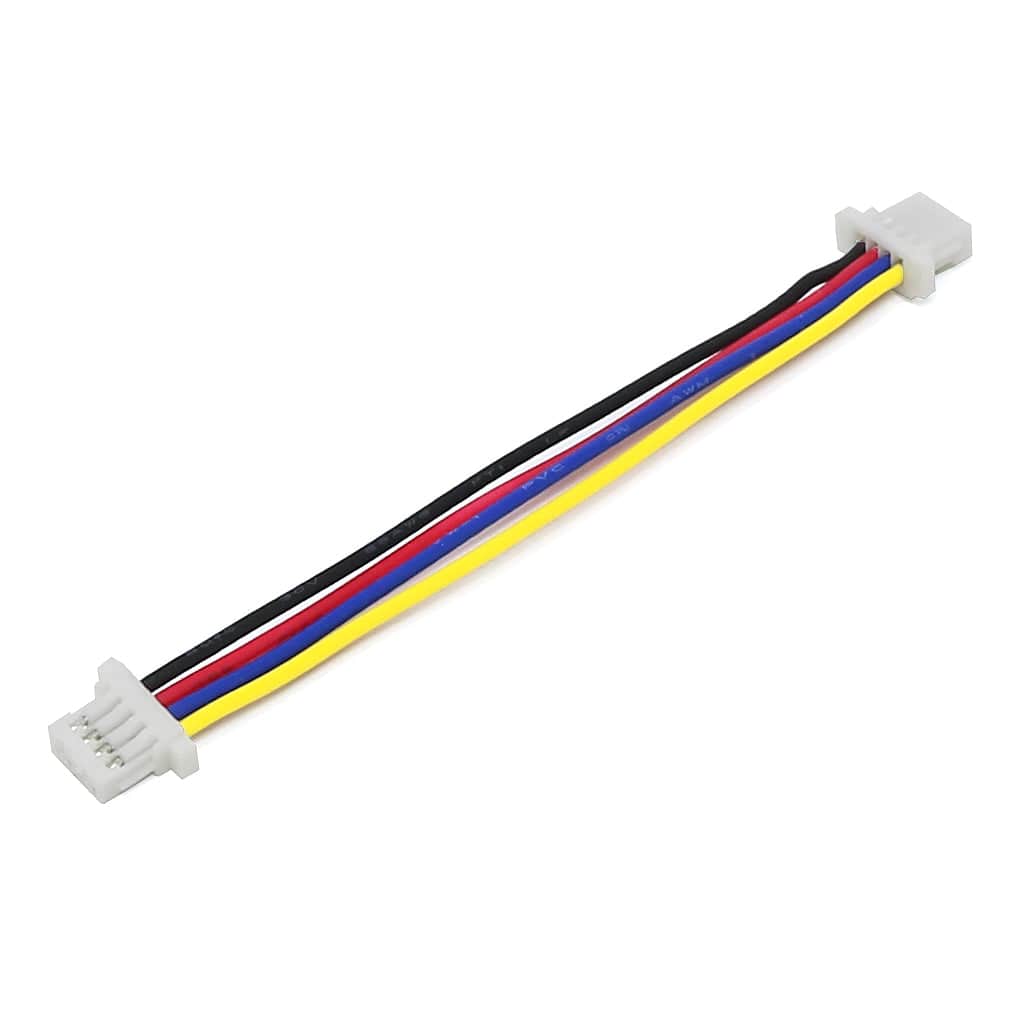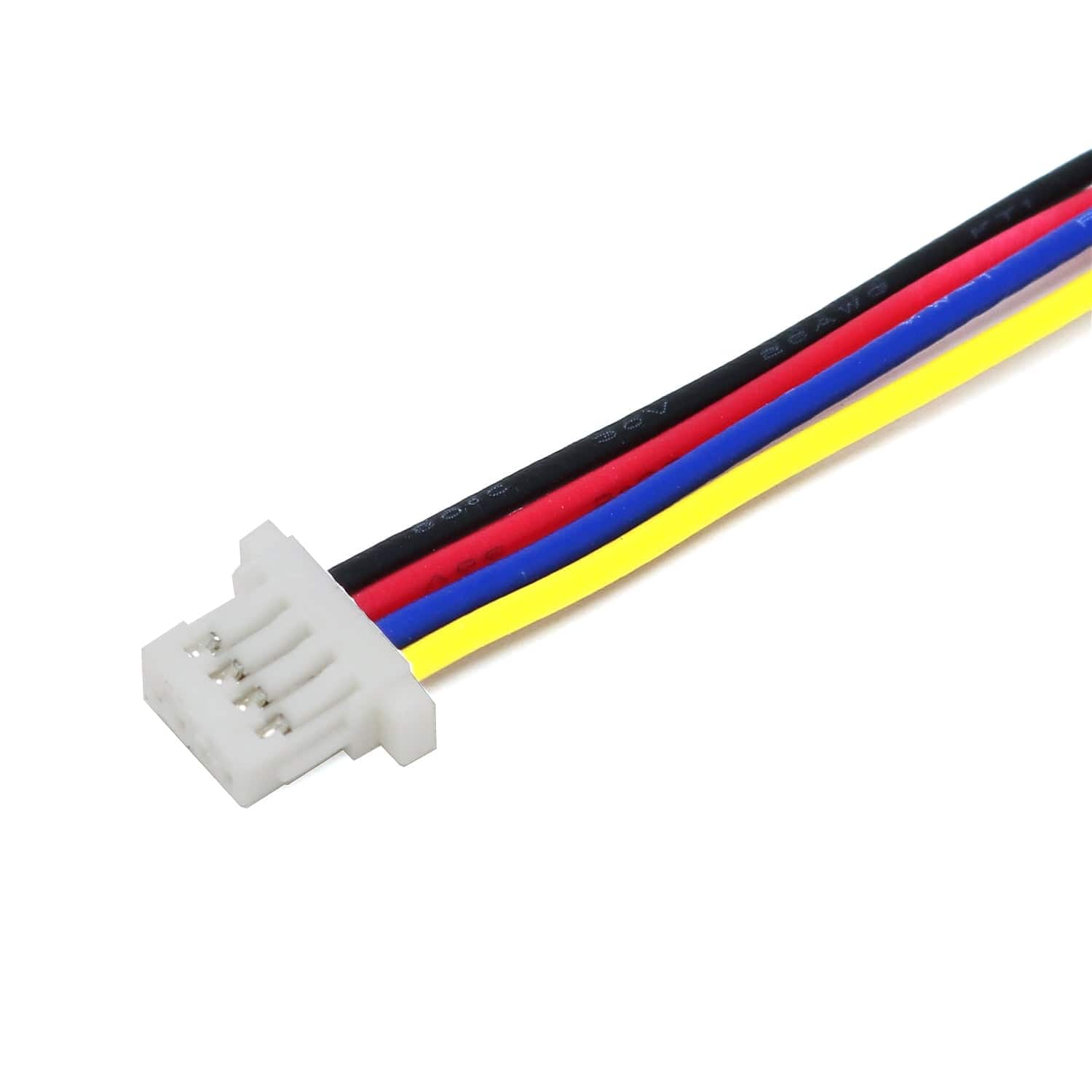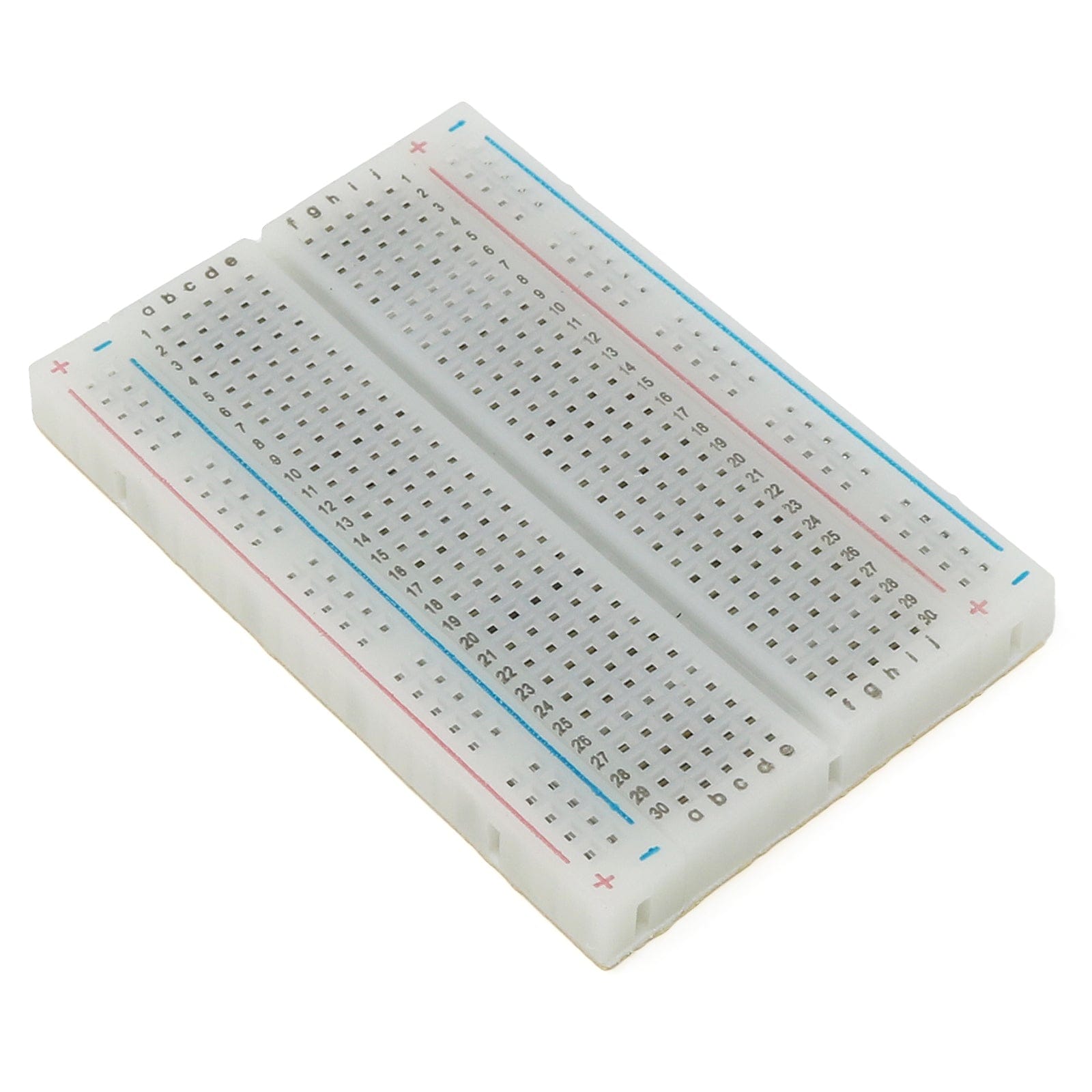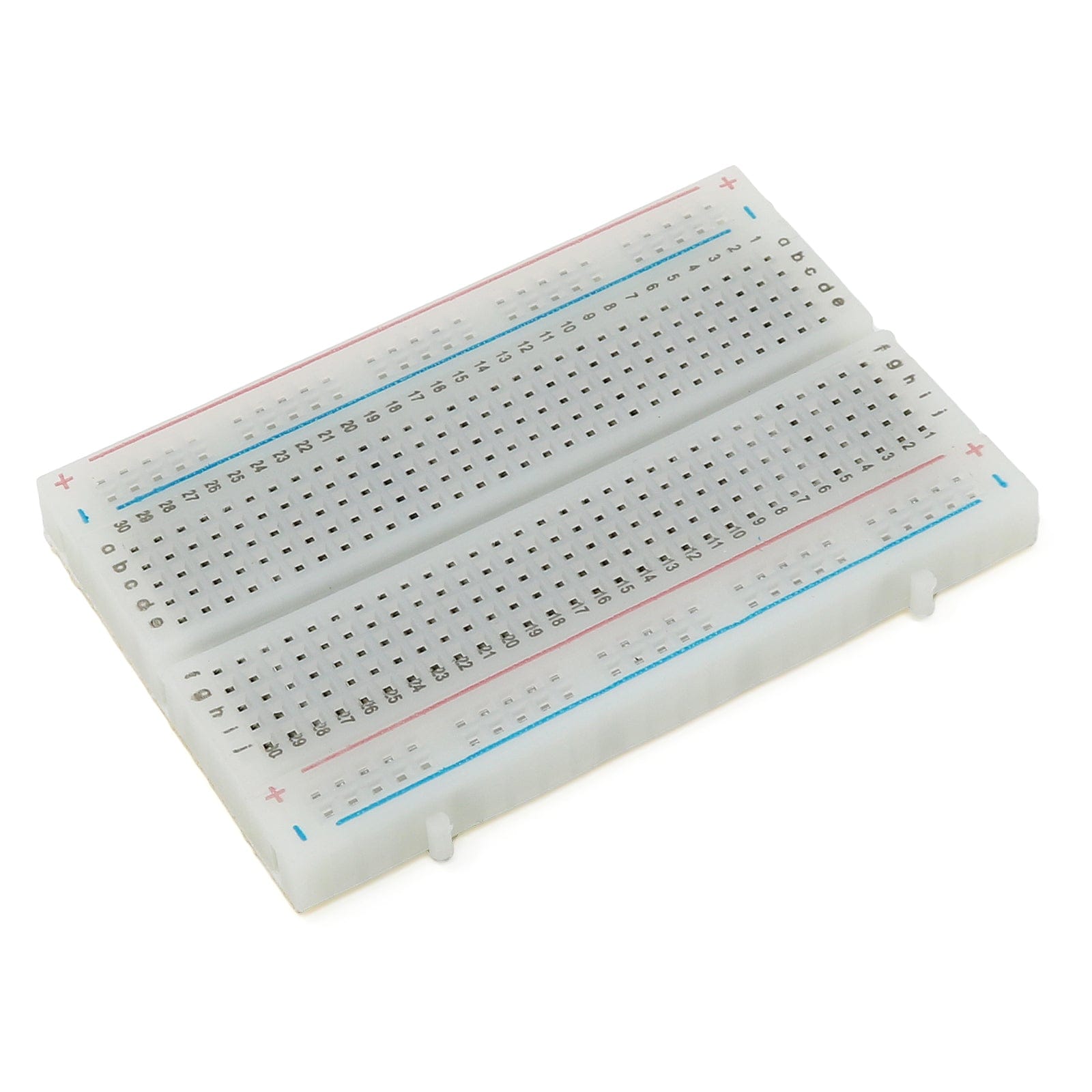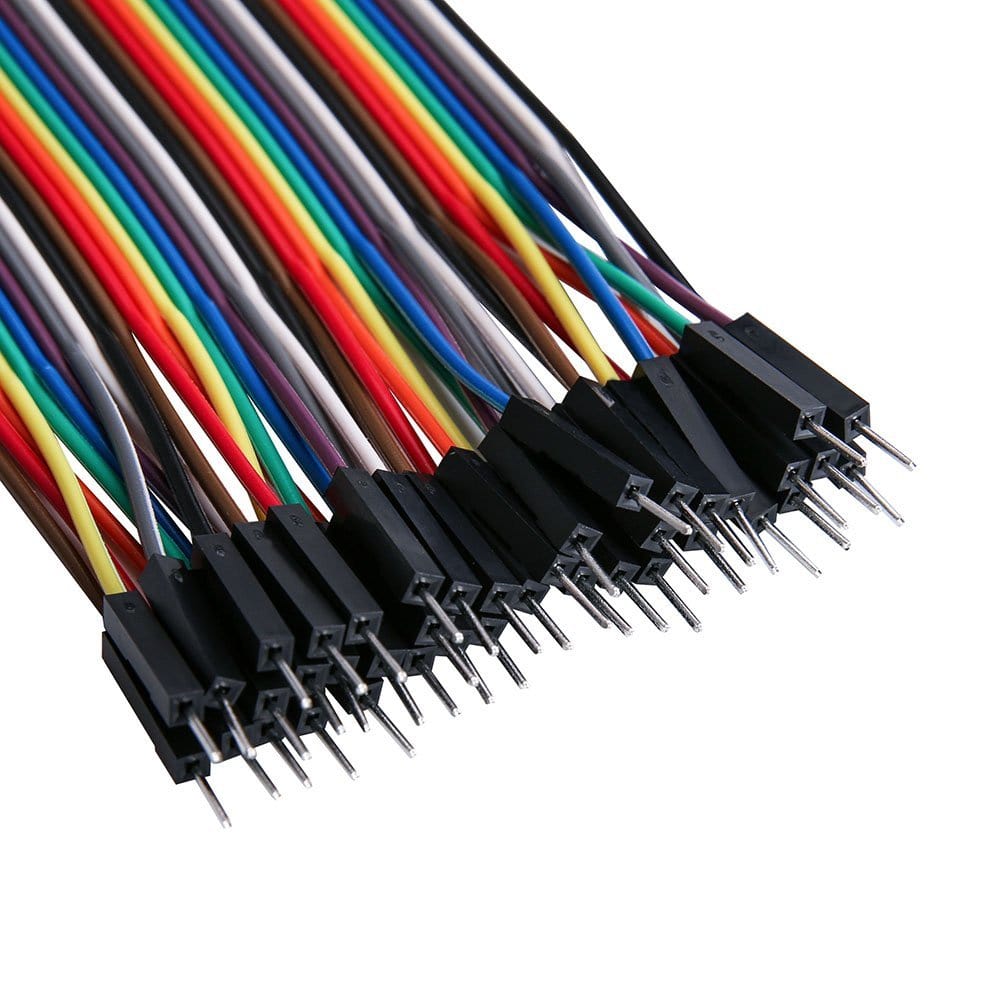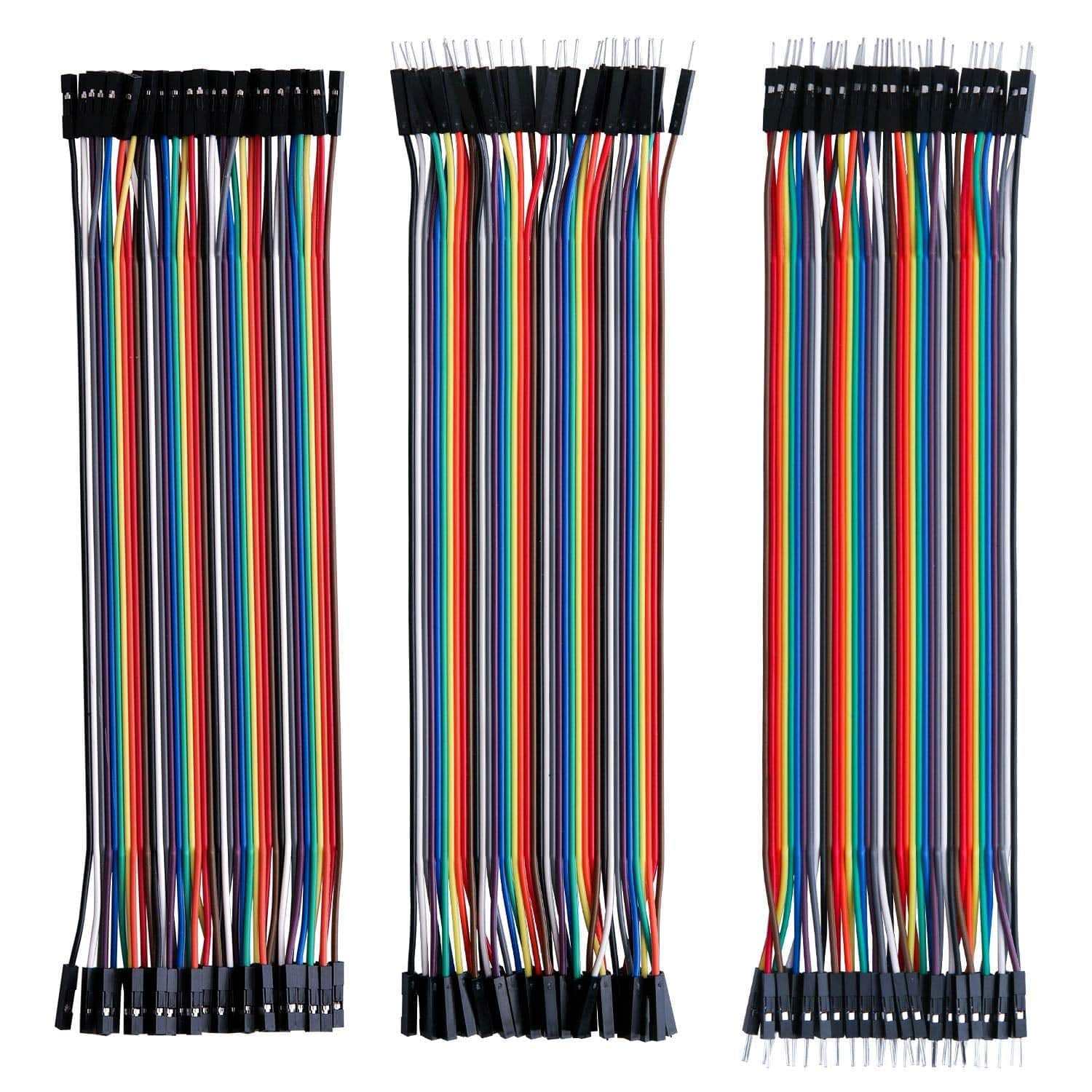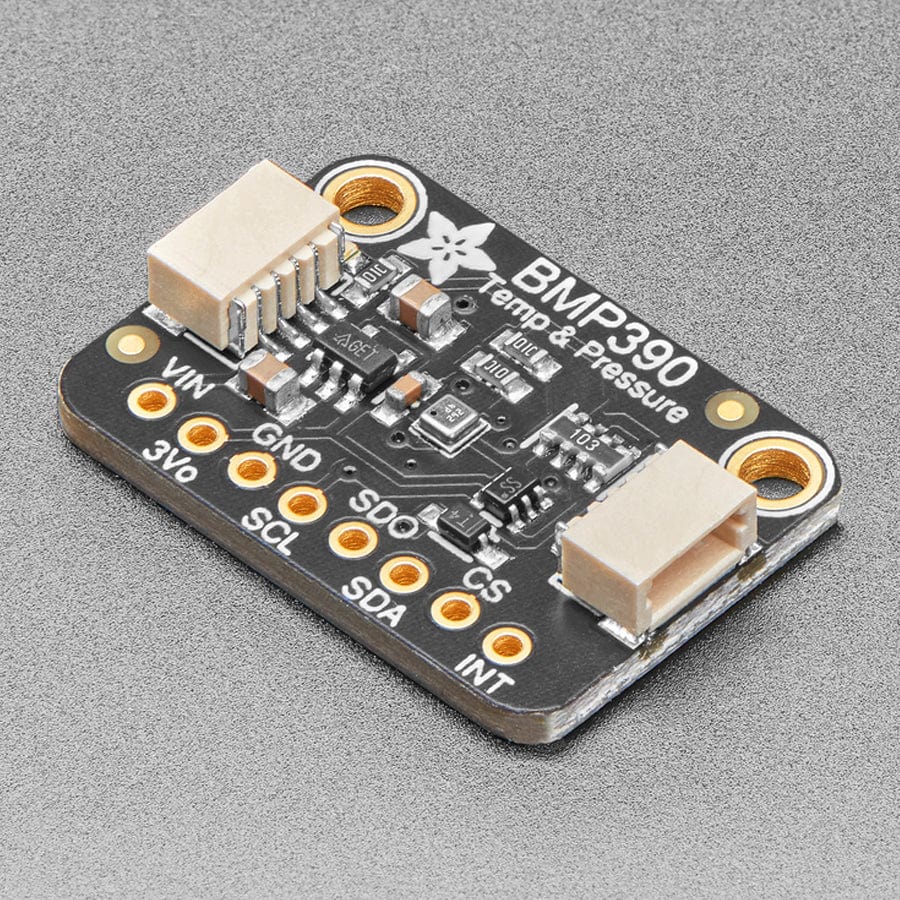
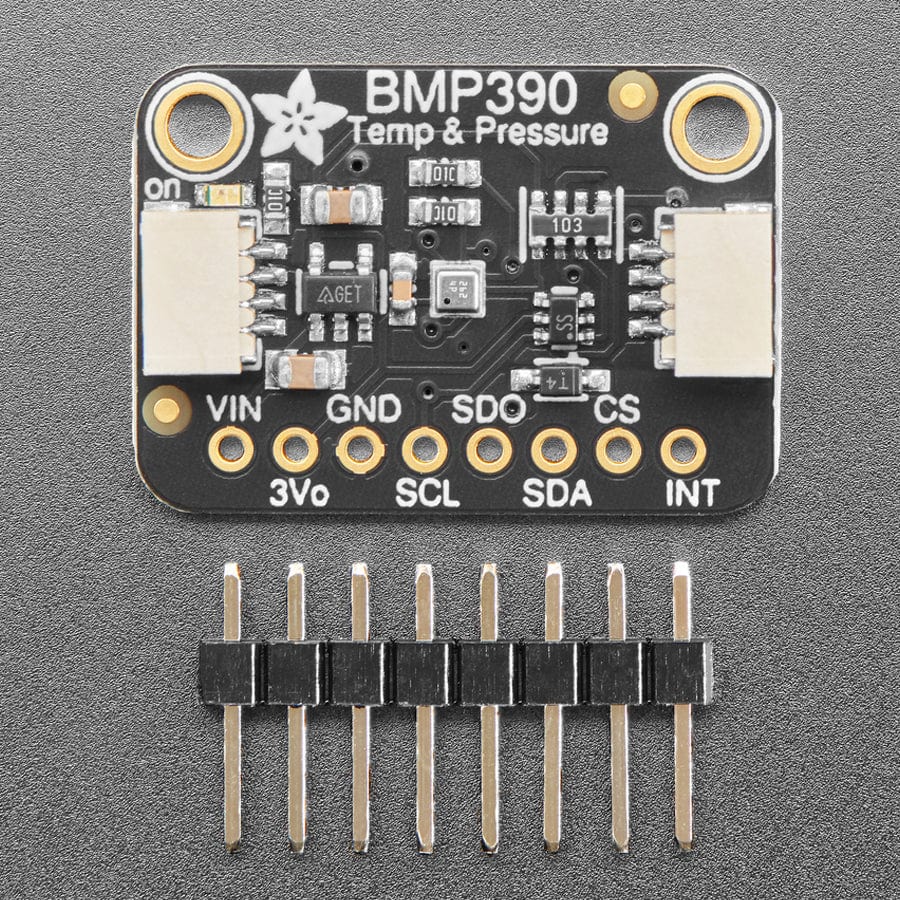
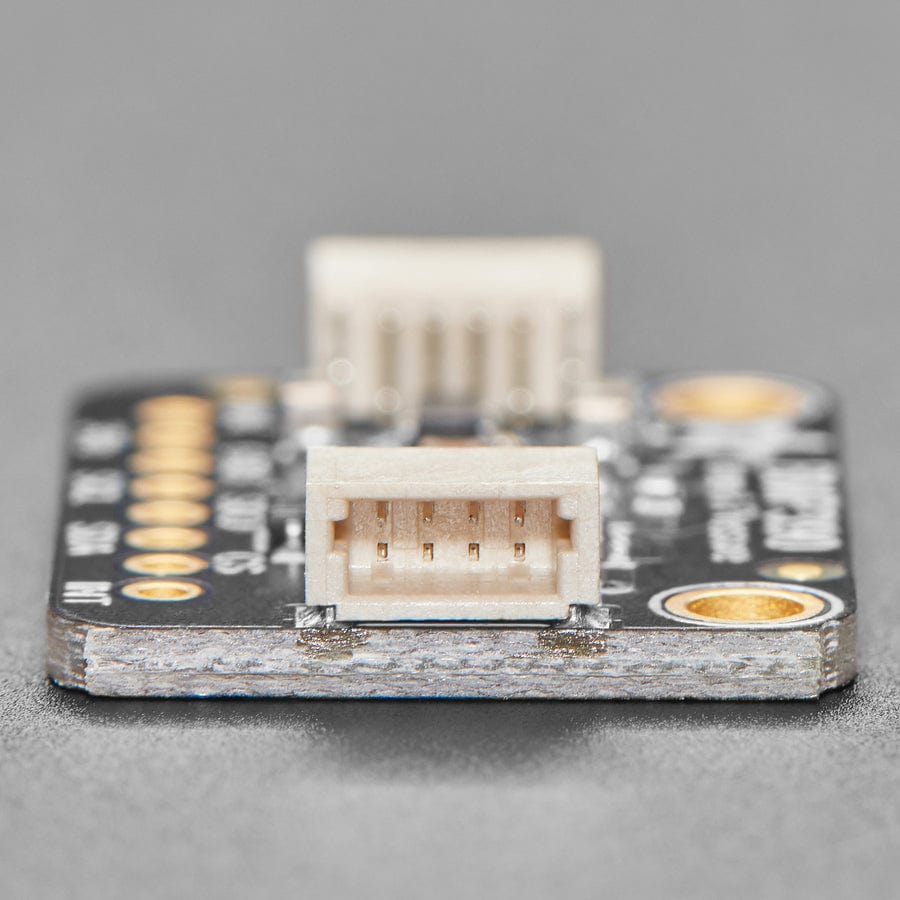
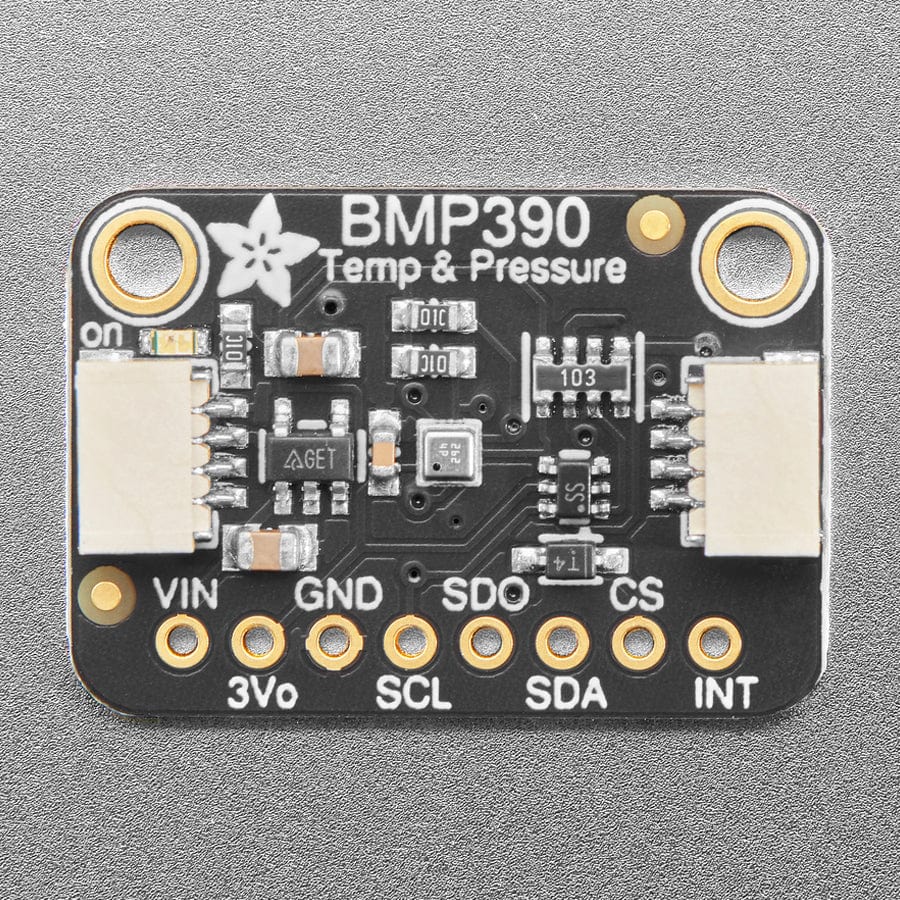
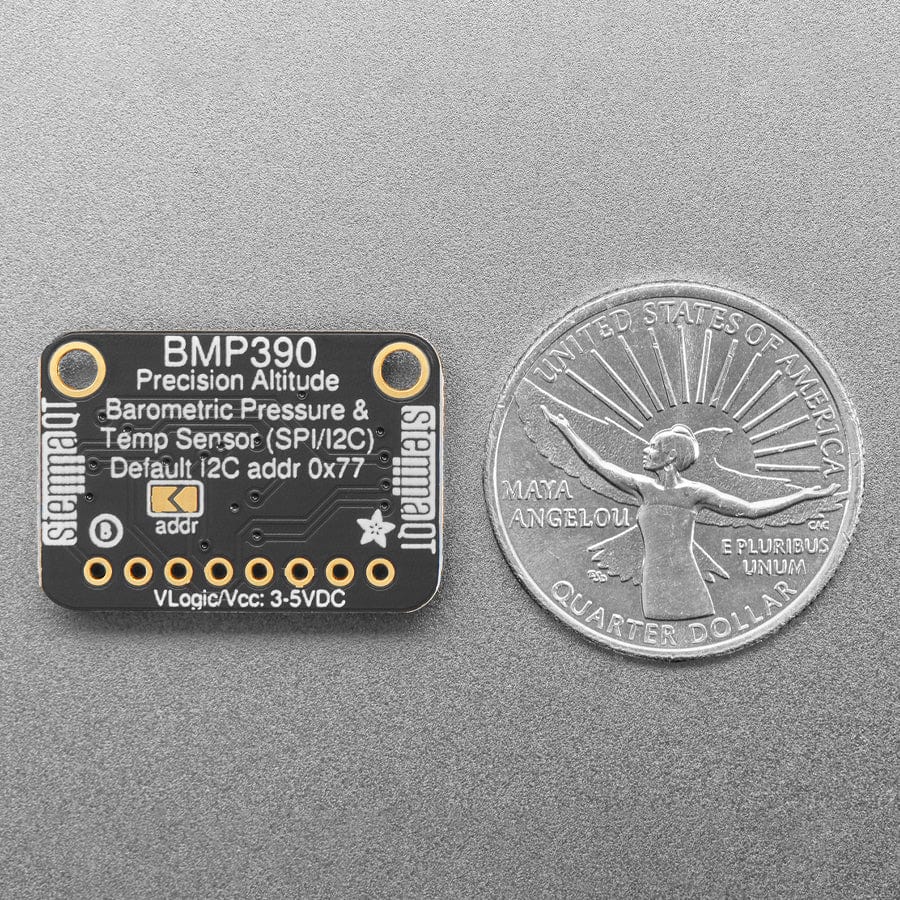
Login / Signup
Cart
Your cart is empty
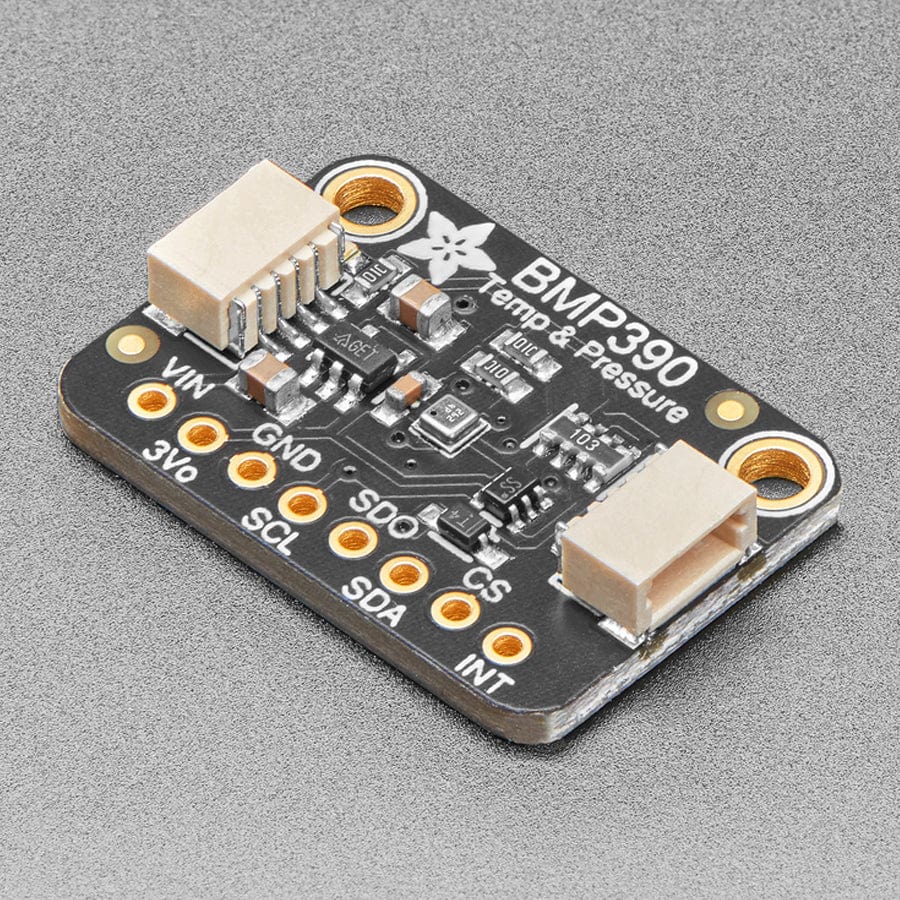
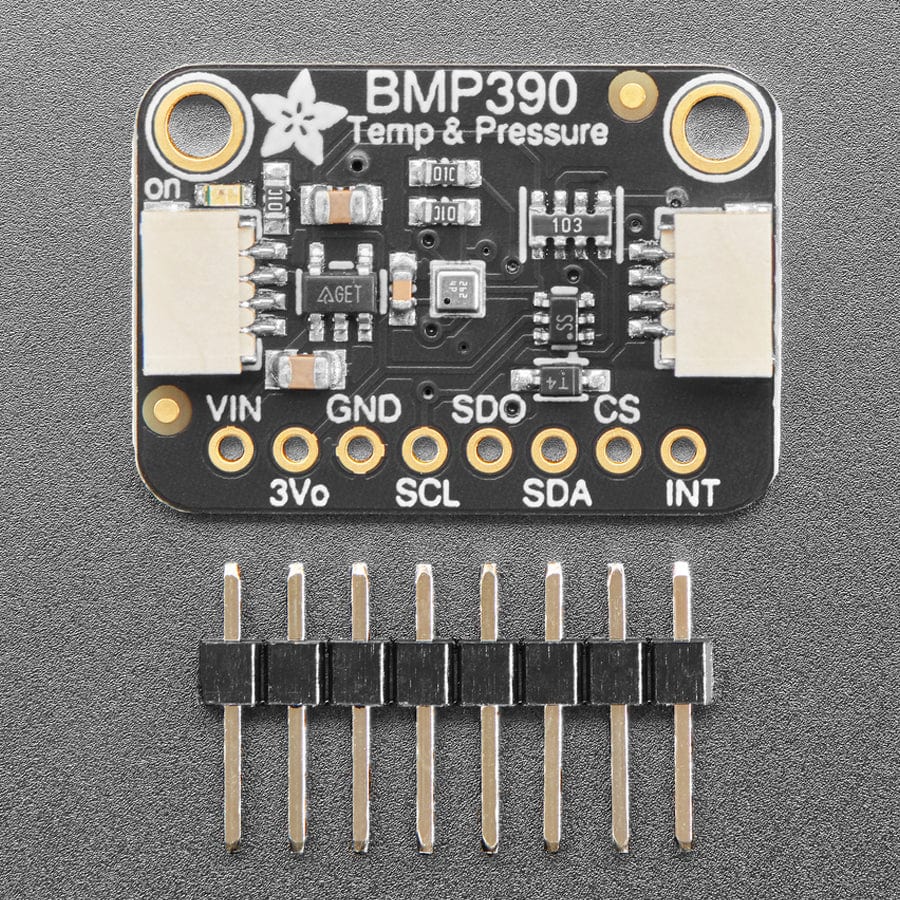
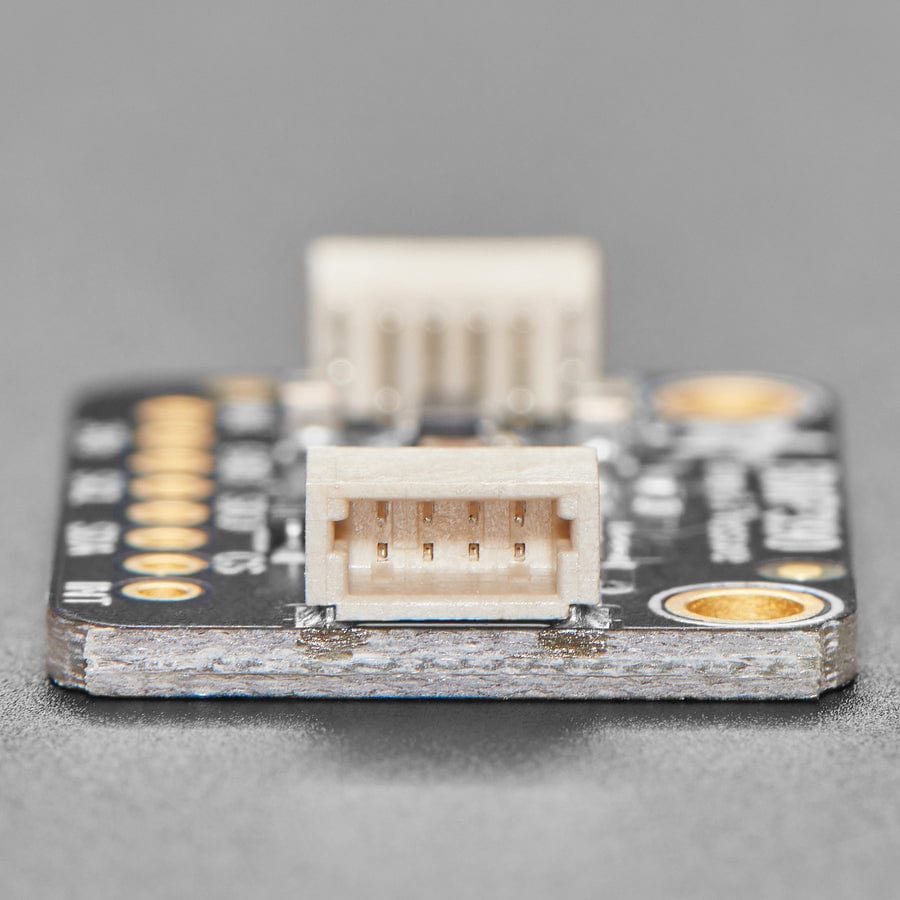
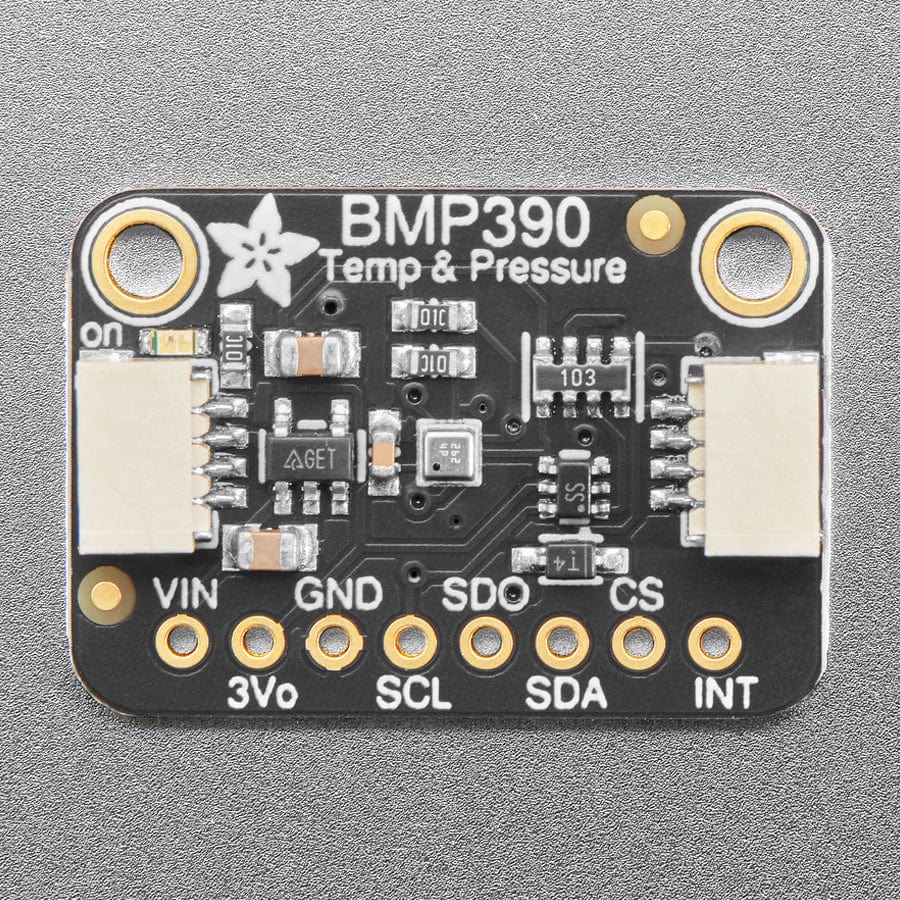
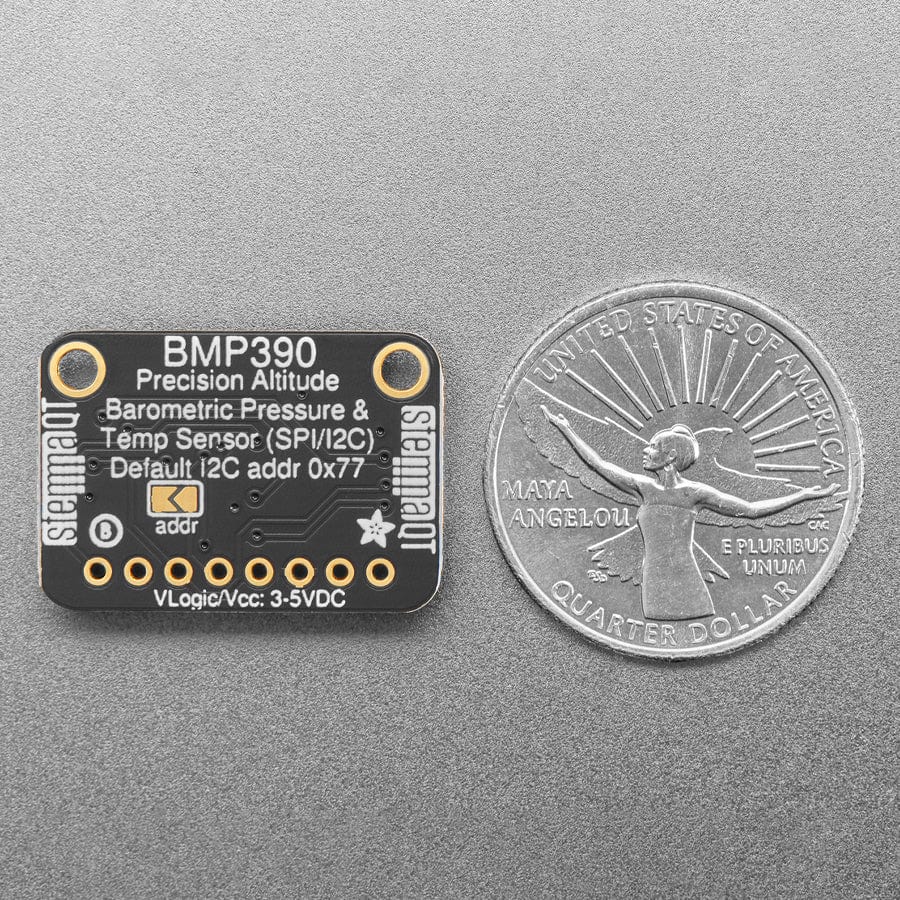
Bosch has been a leader in barometric pressure sensors, from the BMP085. BMP180, BMP280, BMP388... now we've got the next generation, the Adafruit BMP390 (we refer to it as the BMP390L or BMP390, same thing!) Precision Barometric Pressure and Altimeter Breakout. As you would expect, this sensor is similar to its earlier versions but even better. The BMP390 has better precision than ever, which makes it excellent for environmental sensing or as a precision altimeter. It can even be used in either I2C or SPI configurations.
The BMP390 is the next generation of sensors from Bosch and is the upgrade to the BMP280 and BMP388 - with a low-altitude noise as low as 0.1m and the same fast conversion time. And like the previous BMP280, you can use I2C or SPI. For simple easy wiring, go with I2C. If you want to connect a bunch of sensors without worrying about I2C address collisions, go with SPI.
This sensor has a relative accuracy of ±3 Pascals, which translates to about ±0.25 meters of altitude (compared to the BMP280's ±12 Pascal/±1 meter and BMP388's ±8 Pascal/±0.5 meter). The datasheet sort of implies they intend this sensor to be used for drones and quadcopters, to keep altitude stable, but you could also use this for wearables or any project that wants to track height above sea level. Note that for absolute height you'll still need to enter the barometric pressure at sea level if the weather changes, but that's true of every altimeter sensor that uses pressure. You can also measure temperature with ±0.5°C accuracy.
Nice sensor right? So we made it easy for you to get right into your next project. The surface-mount sensor is soldered onto a custom-made PCB in the STEMMA QT form factor, making them easy to interface with. The STEMMA QT connectors on either side are compatible with the SparkFun Qwiic I2C connectors. This allows you to make solderless connections between your development board and the BMP390 or to chain it with a wide range of other sensors and accessories using a compatible cable. QT Cable is NOT included, but we have a variety in the shop
Nice sensor right? So we made it easy for you to get right into your next project. The surface-mount sensor is soldered onto a PCB and comes with a 3.3V regulator and level shifting so you can use it with a 3V or 5V logic microcontroller without worry. Check out the Arduino library to get data out in under 10 minutes!
Check out the tutorial guide for wiring diagrams, code libraries, datasheets, schematics and more!






